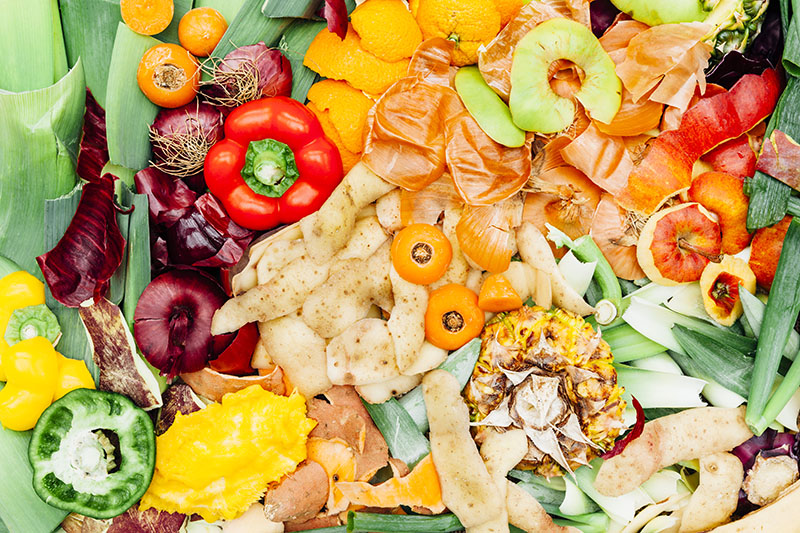How the travel industry is battling food waste
Reducing food waste might appear to be a mammoth task, but more sectors within travel and tourism are recognising the need to tackle the problem, says Megan Tatum
A staggering one-third of all food produced around the world is wasted, and it’s a growing concern to consumers – 48% of people rate food waste as one of their most pressing sustainability concerns, according to a 2018 study by consultancy firm ThoughtWorks. Travel is a significant contributor, with as much as 18% of all food served in the tourism and hospitality sector going to waste.
“Currently, more than 73 billion tourist meals are served every year,” says Claire Kneller, head of food at Wrap Global, an international food waste charity.
“Based on the World Tourism Organisation’s predictions for the growth of international tourism by 2020, this means an additional 2.5 billion meals will be required each year. It’s not hard to see how much food waste could potentially rise then, if the status quo continues.”
So what’s the current state of play in the travel sector? And what can be done to improve the situation?
Aviation
The facts: According to Airports Council International, each plane passenger generates about 1.4 kilograms of food waste per journey, the equivalent of 9 billion kilograms of food discarded annually. Poor in-flight recycling facilities, a failure to separate food from packaging and a fragmented approach are all contributors.
What’s changing? Thankfully, the problem hasn’t gone unnoticed. In 2016, the EU launched its Zero Cabin Waste initiative, a 40-month programme aiming to significantly improve the reduction and recovery of surplus food in the skies. Airlines making progress include easyJet, which has started using algorithms to better predict which meals will be most in demand on which flights, saving about 800,000 fresh food items per year in the process. Many airlines have also begun teaming up with redistribution groups that collect any leftover food and take it to local charities. Oz Harvest, which works with Qantas and Virgin Australia, has rescued about 160 tons from its airline partners this way.
How to help: Travelling with low-cost carriers that require meals to be pre-ordered is one way to avoid clients adding to food waste. Airlines that use apps or online booking tools to find out what travellers would like to eat ahead of time avoid overstocking flights – one of the biggest causes of waste – while also preventing the likelihood of meals being discarded once served.
Hotels
The facts: Major contributors to waste in the industry include overly long menus, poor separation and recycling, and inaccurate forecasting when it comes to ordering. As a result, UK hotels alone annually produce about 79,000 tons of food waste, with only 43% properly recycled. Crucially, it’s also thought to cost the sector £318 million per year.
What’s changing? Lots. Hotels around the world are making huge strides in tackling food waste. For some, that has meant utilising new technology, such as Winnow, a set of digital scales that tracks exactly what is being thrown away and how much, so chefs can see what the biggest causes of waste are. At the Armani Hotel Dubai, the system has reduced food waste by 47%, the equivalent of 117,000 meals.
“We have really learnt to look at our all-day dining with a different lens,” says general manager Mark Kirby. “When it is recorded in a system and collates data overtime, this gives us a much more credible view of what is being wasted.”
Waldorf Astoria’s Rome Cavalieri has taken things one step further, transforming one of its most heavily wasted items, bread, into a brand new product. In partnership with Equoevento, a non-profit organisation in Rome, the hotel distributes its unused bread to local brewery Birrificio Vale la Pena, where it’s made into beer served at the hotel’s Sunday brunch.
How to help: Julie Middleton, head of sustainable practice at the Travel Foundation, says:
“There are many common-sense ways to reduce food waste, such as using smaller plates at buffets, cooking by demand and limiting menus.”
Both agents and hotels can help by drawing consumers’ attention to these initiatives, be it zero-waste tasting menus on offer, or collaborations with local charitable projects.
“Most customers hate food waste too, so they are more than happy to see hoteliers doing something about it,” adds Middleton.
Tour operators
The facts: When organising itineraries spanning international and domestic travel, accommodation and day trips, managing food waste can be a big task for a tour operator. But it’s increasingly a deal-breaker too, with 87% of travellers saying sustainability is important on holiday, according to a 2018 survey by Booking.com.
What’s changing? Many operators are now developing comprehensive food waste policies that cover both the hotels and transport companies they use. Thomas Cook, for instance, has worked with chefs and hoteliers in its portfolio to develop a manual on sustainable food.
“It includes practical actions hotels can take including looking at local food, seasonal food, sustainable purchasing policies, how to present food and designing a sustainable menu,” says
David Ville, group sustainability manager at Thomas Cook. The operator is also measuring progress, aiming for a 5% average reduction and up to 30% at some of its hotels.
Responsible Travel applies responsible tourism policies, including food waste reduction, for all its operator’s trips. Chief executive Justin Francis says: “These clearly show the impact the trip has on all the people and places in that destination, so our customers can see how responsible their holiday is.”
How to help: Francis recommends that agents should request food waste policies from tour operators or cruise companies, making these available and transparent to their customers so that they are fully informed before making a decision. Companies should engage staff on the issue too.
Agents can also follow the example of Intrepid Group. The company holds a Zero Waste Week in its Brixton office, asking staff to reduce their waste footprint, use sustainable materials and volunteer with London food waste redistribution charity City Harvest.
Food waste might appear to be a complex issue to tackle, but it’s clear there’s an appetite among both travellers and the travel industry to do more. Not only will reducing waste satisfy the increasing number of customers prioritising sustainability, but it will also save businesses millions.
A study by Wrap Global, in conjunction with the World Resources Institute, revealed a huge ROI of £5.40 for every 78p invested in reducing waste. In short, “the reasons to act are overwhelming” says Wrap Global’s Kneller.
Working with responsible suppliers
Abta’s Travelife for Hotels & Accommodations standard requires Abta’s certified hotels to monitor, manage and reduce their food waste. “A number of Abta member tour operators are also Travelife members, using us as a means to help manage accommodation sustainability within their supply chain, with food waste being an important component of that,” says Carolyn Wincer, commercial director at Travelife for Accommodation Providers. “We expect to see hotels make continued improvements over the course of membership, and our independent auditors assess this progress every two years during an onsite accommodation audit.” Abta members can look for hotels with the Travelife Gold certification mark either by booking through a tour operator or searching the online database at travelifecollection.com.
What’s your view on the food waste issue? Email feedback@ttgmedia.com and let us know your thoughts or leave a comment below.















